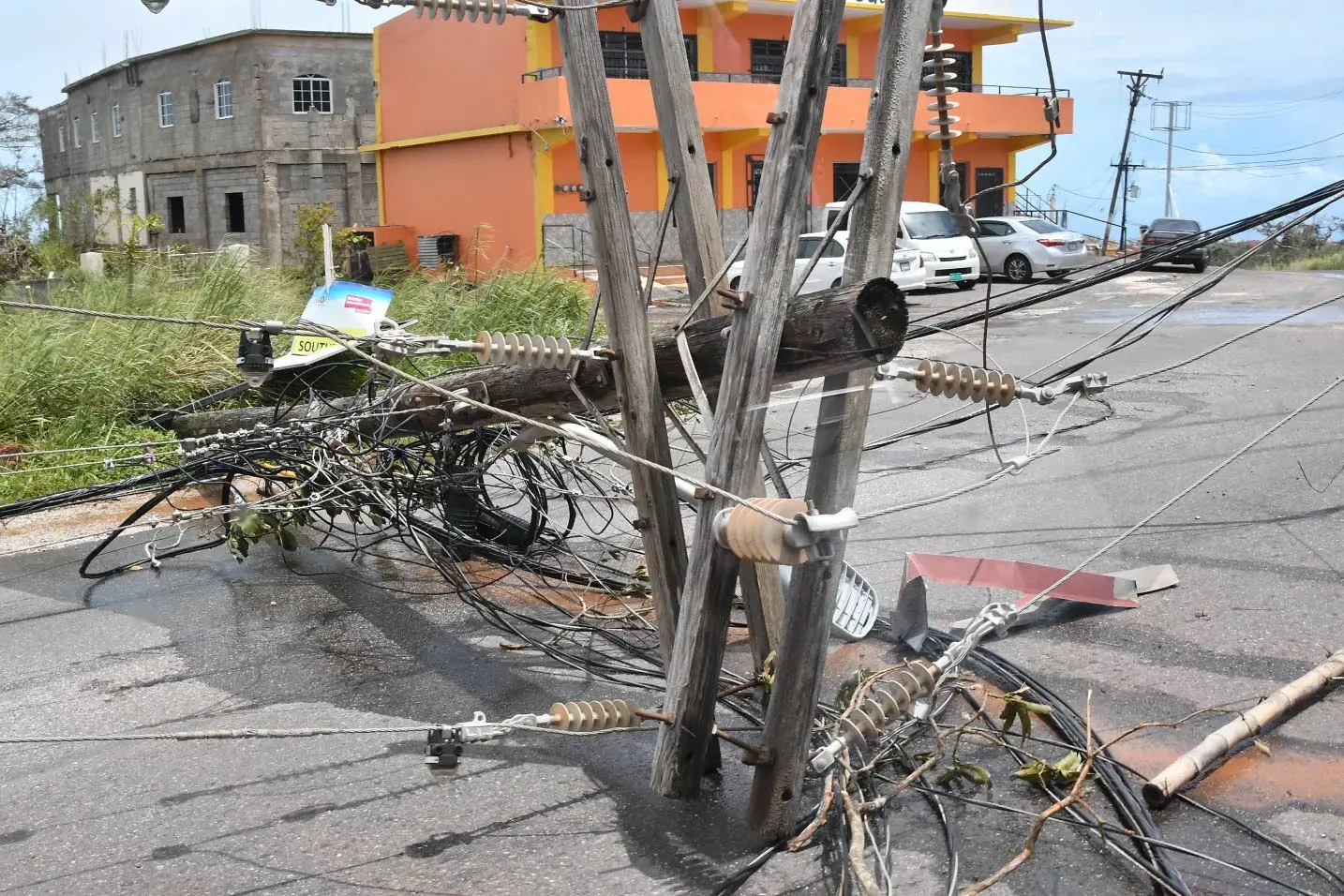
POWERLESS
Regulator unable to sanction JPS over exorbitant light bills
THE Office of Utilities Regulation (OUR) is lamenting the failure of successive Administrations to grant its request for legislative changes that would allow it to directly sanction utility companies which fail to obey the rules.
The OUR has faced strong criticisms in recent weeks for its failure to hold Jamaica Public Service Company (JPS) to account for its failure to speedily restore power in some communities as well as the issuing of electricity bills, some of which are unusually high, after the July 3 passage of Hurricane Beryl.
Among the strongest critics of the regulator has been Minister of Energy Daryl Vaz, who raised concerns regarding the efficacy of the oversight being provided by the OUR in respect to JPS.
Vaz has also hinted at legislative changes to give the Government more leeway to take action against utility providers in the aftermath of a natural disaster.
But addressing a Jamaica Observer Press Club last Friday, OUR Director General Ansord Hewitt said some of the calls for action by the regulator are expecting more than it can deliver.
According to Hewitt, when you are in the middle of a crisis such as Jamaica is facing post-Beryl, there is a temptation to move without due care.
“Some of the discussion that I have heard is that while we have created an environment in which the political directorate has ceded some authority to what you call an independent regulator, and to the extent that this does not deliver the instant solutions that we want… there may be a need to revisit that, [but] that’s something that we will have to think about,” said Hewitt.
He argued that with an agitated public the political directorate would want to see immediate action but the OUR cannot operate that way.
“There is always call for instant action, but that is not the way it works,” said Hewitt.
“What you [the regulator] need to do is to make sure there is a certain environment in which the utilities operate and that there is the authority for sanctions, which is what we have been agitating for to strengthen those, because we think that it is critical,” added Hewitt.
He was supported Cheryl Lewis, the OUR’s deputy director general for consumer and public affairs and legal, who pointed to the sharp increase in electricity bills from JPS in the August billing cycle.
According to Lewis, whenever there is going to be a “rate shock” or some upheaval in the system, it is an understood practice that the OUR and JPS would meet to discuss how the matter is to be treated.
“In this case, however, there was no engagement by JPS with us on the matter. Unfortunately, we heard by the way, just like the public, and immediately we engaged JPS,” said Lewis as she noted that the OUR has the power to determine what rate should be applied by the light and power company.
The OUR has since written to JPS, explaining that within the context of the current hike in electricity bills, how it was executed, and given the OUR’s responsibility to approve non-fuel and fuel rates as stipulated in Schedule 3 of JPS’s Electricity Licence, 2016, the company should reduce customer bills in September 2024 by the difference in JPS’s fuel cost in July 2024 over June.
The regulator has also instructed JPS that August bills with zero consumption that do not show a corresponding zero money value should be reissued.
Lewis noted that the OUR’s directive to JPS is about the total of what the legislation now allows as there is no provision for it to sanction the company.
“As far back as 2012 the OUR has put proposals for the amendment of its Act to ensure that there is enforcement provisions; to date, those amendments have not taken place, and we have had several reviews, we have had several submissions,” an obviously disappointed Lewis told Observer editors and reporters.
For his part, the director general said while the OUR tries to avoid getting into a public brawl, particularly with the political directorate, the need for increased powers for the regulator is obvious.
“Because we think that some of the things that the utilities do, they do so because fine, by the time we have gone through the judicial process — you may issue a directive yes, but the enforcement of that directive actually lies within the court, and in fact, the law is constructed in such a way that you actually have to, in some instances, get the police to do an investigation and then you go to the parish court to get enforcement.
“There ought to be legislative changes. For example, in the Electricity Act there is provision for penalties. Rather than going through a court process there can be an agreement that they pay the fixed fine,” added Hewitt.
In the meantime, Lewis noted that in 2012, when the Telecommunications Act was amended, the OUR, at the time, sought to have entered into legislation the fact that it could impose fines directly and have enforcement provisions over the utilities.
“We were told at the time that that was not within the constitutional framework and could not be done,” she said.
“Because we have recognised that there is the gap of enforcement we, last year or early this year, sought an opinion, which we are awaiting, as to whether or not… the OUR can be empowered, within our constitutional framework, to directly impose fines on the utilities where they do not comply, rather than having to go through the court system,” added Lewis.


























